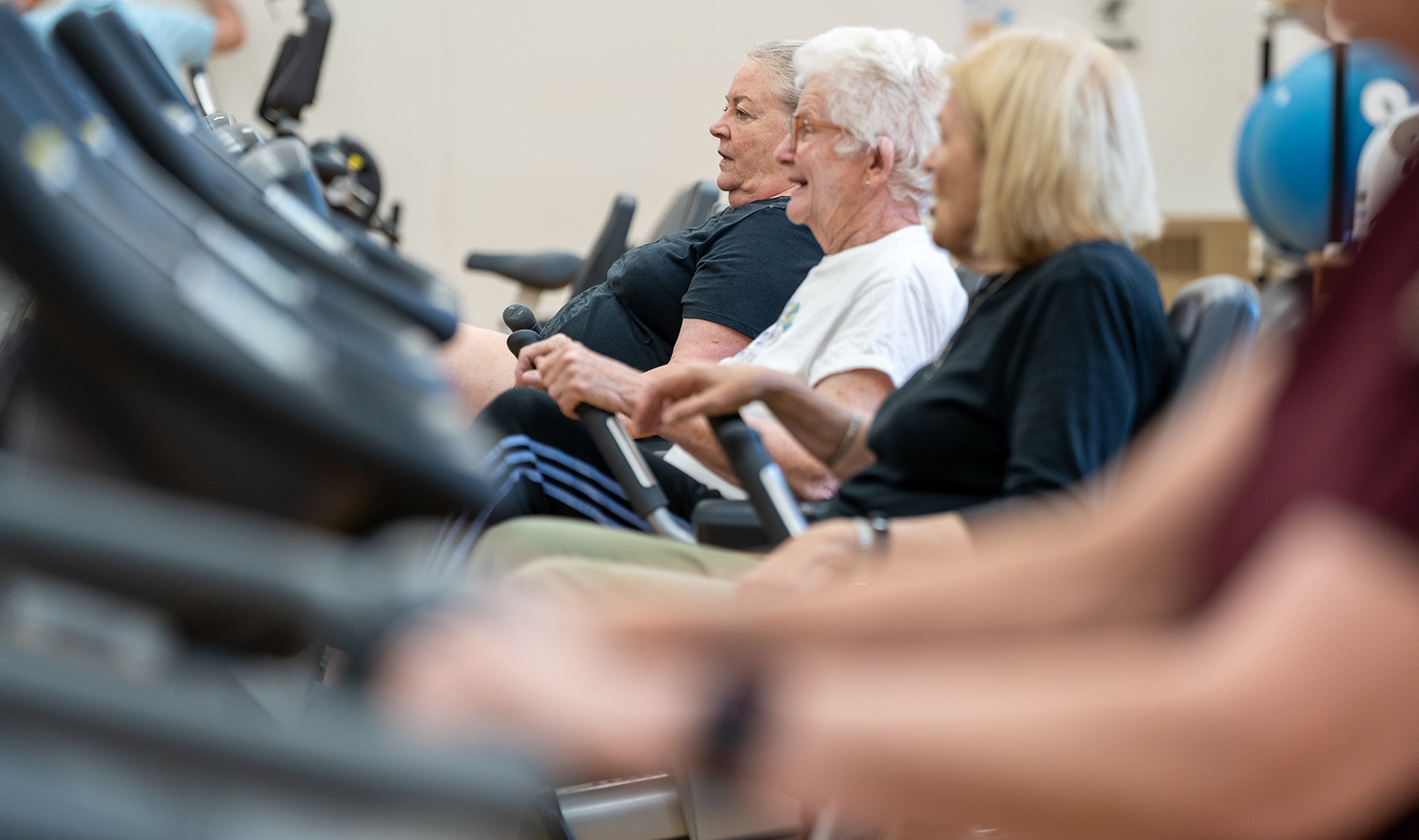Published: ​​​May 11, 2020
McMaster University has been a member of the Age-Friendly University Network since 2017. With pre-existing strengths in research in aging, health sciences and community engagement, McMaster University has been able to pivot quickly and respond to the demands of the COVID-19 pandemic, while supporting older adults during physical distancing measures.
The following is a list of the initiatives the University and its broader community have undertaken in these areas.
- The McMaster Optimal Aging Portal has shifted its focus to provide content that supports older adults to stay active and engaged while practicing physical distancing. The Portal is a unique resource that provides evidence-based information to older adults in consumer-friendly language to support them to age well. Even though McMaster is based in Canada, the Portal’s information is written to be universally applicable, and, as such, the website has users around the world. We encourage you to use this resource and share it with older adults in your communities (it’s a great resource for healthcare practitioners too!). Visit the the McMaster Optimal Aging Portal for more information.
- The Canadian Longitudinal Study on Aging (CLSA) has launched a COVID-19 study to its 50,000 participants who were between the ages of 45 and 85 when they were recruited, distributed across Canada’s 10 provinces. Over the next six months, the CLSA COVID-19 study will collect weekly and monthly data from its participants through online and telephone surveys to gain a comprehensive picture of the spread and impact of the pandemic. The study will examine the experiences of older adults during the coronavirus pandemic, exploring how they cope, the impacts on their physical and mental health, and changes to how they access health-care services. This data will provide us with a national perspective of the impact of COVID-19 on older adults. Funding for this study is provided by the McMaster Institute for Research on Aging (MIRA), McMaster University and the Juravinski Research Institute through a new gift for research on the pandemic from Hamilton, Ont, philanthropists Charles and Margaret Juravinski. Read more about this project here.
- A multi-disciplinary team of researchers led by MIRA Scientific Director Parminder Raina and Andrea Gonzalez have launched the InHamilton COVID-19 study, to explore how people who work and/or live in Hamilton have been impacted by the COVID-19 health crisis. This study aims to understand how people are responding to the crisis and will use this data to better identify strengths and opportunities for growth in the current pandemic response.
- The McMaster Institute for Research on Aging (MIRA) launched Labarge COVID-19 Grants to fund COVID-19 research that is particularly focused on mobility in aging within the context of the COVID-19 pandemic. Older adults are impacted more seriously by COVID-19, and the physical distancing that is currently in place to slow its spread. People with underlying health conditions or older adults are twice as likely to experience negative outcomes. Social isolation can be challenging for older adults, and there is a concern that older adults are also more likely to experience negative outcomes related to the physical distancing guidelines recommended for preventing community spread of COVID-19. This funding aims to stimulate research that can address some of these challenges. Read more about this funding opportunity here.
- The McMaster Centre for Continuing Education launched general interest courses for older adults in March. These courses will now be offered online to provide older adults with an opportunity to engage with each other and continue life-long learning from home. Read more about available courses here.
- The McMaster Centre for Continuing Education is offering its Caregiving Essentials Course online this spring. This free, online program is an outcome of funding provided by the Ministry of Seniors in 2018 and further supported by the Regional Geriatric Programs of Ontario as a recipient of funding from the Ministry of Health. The program has been well received by caregivers across Ontario It is an accessible way of sharing evidence-based information about aging and caregiving as recognized by the McMaster Institute for Research on Aging (MIRA). Find out more about Caregiving Essentials here.
- The Gilbrea Centre for Studies in Aging has moved their programming for older adults online during COVID-19. They are offering their “Writing in Later Life” sessions in partnership with the Hamilton Public Library later this spring. Find out more about Gilbrea programming here.
- The Office for Community Engagement has refocused its weekly newsletter on highlighting opportunities for the McMaster and Hamilton communities to support one another during the COVID-19 crisis by highlighting opportunities to support organizations that need volunteers or in-kind or monetary donations. These opportunities include volunteer positions through local organizations, such as food banks and CareMongering HamOnt, which mobilizes volunteer resources to ensure vulnerable community members have access to food, housing, healthcare, and other necessities.
- The Mac-Waterloo-Niagara Student-Senior Isolation Prevention Partnership (SSIPP) was formed by trainees enrolled at McMaster University and the University of Waterloo Medical School. Through this program, students call older adults who may be isolated to provide friendly conversation and discover any health care concerns. This program is expanding in partnership with Ontario’s Local Health Integration Networks.
- The McMaster Museum of Art is offering virtual exhibit tours and a variety of online resources that allow patrons to explore its collections. Click here to find out more.
- McMaster researchers across the Faculties are contributing to international research efforts during the COVID-19 pandemic. This includes research that helps us to understand the COVID-19 virus, develop effective treatments, protect frontline workers and support the health care system during this crisis, including researchers who are:
- identifying COVID-19 infection rates in the population and understanding what makes people susceptible to the virus;
- working as part of a three-institution team that isolated the COVID-19 virus, allowing researchers to understand how it works and enabling drug testing;
- developing new methods to speed up diagnostic testing and designing domestically-produced testing kits, and;
- collaborating with Canadian Blood Services and other academic and healthcare partners as part of the national team trialing COVID-19 plasma therapy;
- studying and testing domestically-produced personal protective equipment (PPE) such as N95 masks;
- collecting information on the impact and spread of COVID-19 in the healthcare system to develop recommendations for better protecting staff and patients during COVID-19 and future pandemics;
- using data analytics and machine learning to help inform Canada’s crisis response and the implementation of non-pharmaceutical interventions to slow the spread of COVID-19;
- developing a toolkit to assess cardiorespiratory patients and support healthcare providers to assess which vulnerable patients can remain at home; creating guidelines for chronic pain patients who may have difficulty accessing care during COVID-19, and;
- developing recommendations for safely rehabilitating COVID-19 patients.

